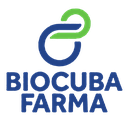Executive Secretary

VIII International Symposium on Chemistry and Pharmaceutical Sciences
STA
V International Symposium "Technological and Environmental Security"
Abstract
Introduction: Worldwide, the use of biopesticides in agriculture has been an alternative for the control of crop diseases. The Food and Agriculture Organization of the United Nations has suggested that in addition to endorsing their use, ecotoxicological safety should be documented. Cuban scientific institutions: CENSA, "Indio Hatuey" Station, LABIOFAM and the IBP; have several products that have been shown to be useful in agriculture; but it was necessary to carry out ecotoxicological tests, aspects that could be fulfilled in the Center of Chemical Bioactives (CBQ), which has a battery of tests to evaluate the impact of bioproducts on biotic factors representative of different ecosystems, so it was necessary the scientific integration between these centers. Objective: To evaluate the impact on the ecotoxicological evaluation of CBQ with the bioproduct producing centers. Methodology: Contracts, primary documents, technical reports and interviews with producers were reviewed. Results: For more than 10 years CBQ contracted with different institutions and evaluated the ecotoxicological safety of bioproducts: Tricosave34, Thurisave13, 24, 25 and 26; SevetriC13 and 79; IHPLUS, CBQ-AgroG, Vitrofural, IBPBA5, IBPBC5 in different biomodels representative of the ecosystem. The tests were performed at use doses and in static regime, according to EPA and OECD regulations. The clients have endorsed the quality of the documentation received. Conclusion: A profitable interrelation of work has been achieved between several research centers with CBQ in the field of ecotoxicology.
Resumen
Introducción: A nivel mundial el uso de bioplaguicidas en la agricultura ha sido una alternativa para el control de enfermedades de los cultivos. La Organización de las Naciones Unidas para la Alimentación y la Agricultura, ha sugerido que además de avalar su uso, se debe documentar la seguridad ecotoxicológica. Instituciones científicas cubanas: CENSA, Estación “Indio Hatuey”, LABIOFAM y el IBP; tienen varios productos a los que se le han demostrado utilidad en la agricultura; pero se le necesitaba realizar los ensayos ecotoxicológicos, aspectos que pudieron cumplimentarse en el Centro de Bioactivos Químicos (CBQ), el cual cuenta con una batería de ensayos para evaluar el impacto de bioproductos sobre factores bióticos representativos de diferentes ecosistemas, por lo que se hizo necesario la integración científica entre estos centros. Objetivo: Evaluar el impacto en la evaluación ecotoxicológica del CBQ con los centros productores de bioproductos. Metodología: Se revisaron contratos, documentos primarios, informes técnicos y entrevistas a productores. Resultados: Durante más de 10 años el CBQ contrató a diferentes instituciones y evaluó la seguridad ecotoxicológica de los bioproductos: Tricosave34, Thurisave13, 24, 25 y 26; SevetriC13 y 79; IHPLUS, CBQ-AgroG, Vitrofural, IBPBA5, IBPBC5 en diferentes biomodelos representativos del ecosistema. Los ensayos se realizaron a dosis de uso y en régimen estático, según las normativas de la EPA y OECD. Los clientes han avalado la calidad de la documentación recibida. Conclusión: Se ha logrado una provechosa interrelación de trabajo entre varios centros de investigación con el CBQ en la rama de la ecotoxicología.
About The Speaker

MsC. Zoe Castañedo Hernández

Discussion




